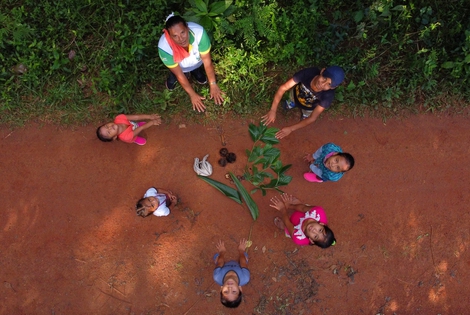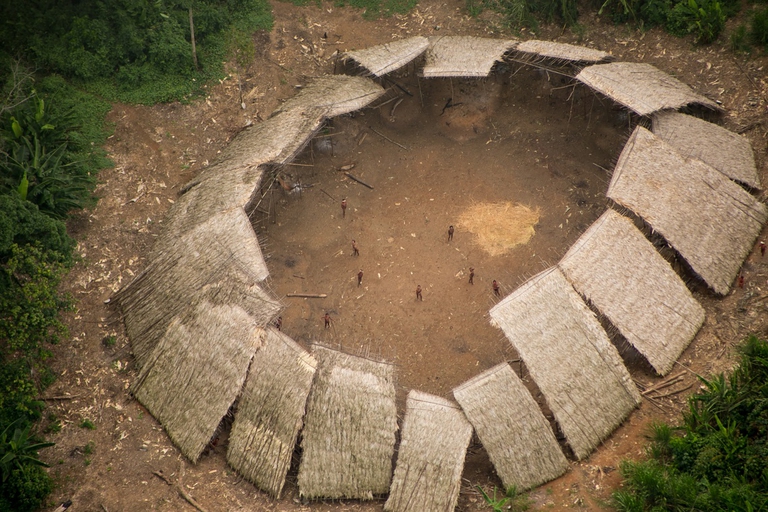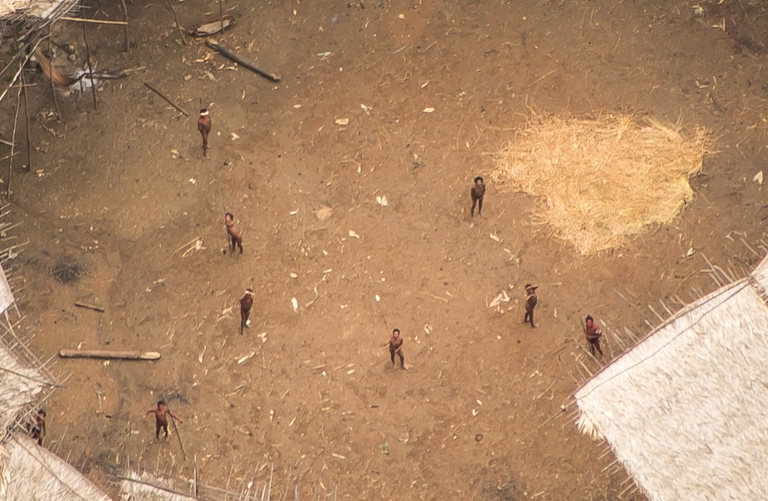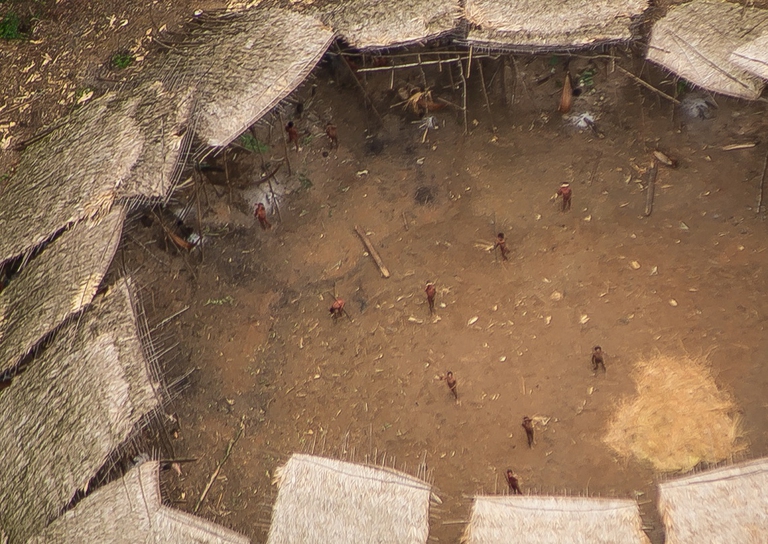
The Amazon became an alternative classroom during the pandemic. Now, the educational forest in Batraja, Bolivia, lives on to teach children and adults the value of nature.
La sopravvivenza della tribù brasiliana degli Yanomami è a rischio a causa dei minatori. Survival ha diffuso nuove immagini per attirare l’attenzione sul genocidio delle tribù incontattate.
The Yanomami is Amazon’s most isolated tribe and lives in the thick forest in northern Brazil, on the border with Venezuela, from time immemorial. About 22,000 Yanomami live on the Brazilian side of the border, and at least 3 groups of them have no contact with society. They’re an essential part of human diversity and the uncontacted tribes around the world amount to 100.
Survival International, global movement aimed at protecting tribal peoples’ rights, has released incredible new aerial pictures that shows an uncontacted Amazon tribe. The village, located in the Yanomami indigenous land in northern Brazil, is thought to be home to about 100 people.
Due to their isolation and extraordinary yet fragile balance based on the resources offered by the forest, uncontacted tribes are extremely vulnerable to external violence and diseases, just like all the indigenous people affected by diseases brought by Europeans in the 15th century. The Yanomami territory is currently occupied by more than 5,000 illegal gold miners who are threatening the tribes’ survival. Miners have brought diseases like malaria, respiratory and intestinal infections, and pneumonia, which have caused 240 deaths in 2015 alone. Gold miners also poisoned water and food sources with mercury, which is used to separate gold nuggets from rocky debris. Poisoning rates are alarming among the Yanomami and Yekuana tribes.
“The place where the uncontacted Indians live, fish, hunt and plant must be protected. The whole world must know that they are there in their forest and that the authorities must respect their right to live there,” said Davi Kopenawa, Yanomami shaman and activist. Kopenawa is chairman of the Hutukara association and has been called “The Dalai Lama of the Rainforest”. He really doesn’t like miners: “They are like termites – they keep coming back and they don’t leave us in peace”.
Survival International is asking Brazilian authorities to act for protecting the Yanomami territories and avoiding the extinction of Amazon tribes. The disappearance of these communities would impoverish humanity, depriving it of an incredible knowledge of nature developed throughout thousands of years. The Yanomami people use 500 different plants to eat, treat, build houses and tools, and make dyes, colours, and hallucinogenic drugs to communicate with the world of spirits. The entire forest would also be affected, as these people are the best guardians against deforestation. The Yanomami tribe is uncontacted for a reason. They’ve deliberately decided to avoid contact with the outside, and even the contacted members of the tribe want to keep living at peace in the hearth of the forest.
Siamo anche su WhatsApp. Segui il canale ufficiale LifeGate per restare aggiornata, aggiornato sulle ultime notizie e sulle nostre attività.
![]()
Quest'opera è distribuita con Licenza Creative Commons Attribuzione - Non commerciale - Non opere derivate 4.0 Internazionale.
The Amazon became an alternative classroom during the pandemic. Now, the educational forest in Batraja, Bolivia, lives on to teach children and adults the value of nature.
A special report from the Yuqui territory delves deep into the dreams, challenges, joys and sadness of one of Bolivia’s most vulnerable indigenous groups.
The Yuqui people of the Bolivian Amazon fight not only to survive in the face of settlers, logging and Covid-19, but to preserve their culture and identity.
Jair Bolsonaro is accused of crimes against humanity for persecuting indigenous Brazilians and destroying the Amazon. We speak to William Bourdon and Charly Salkazanov, the lawyers bringing the case before the ICC.
Our species took its first steps in a world covered in trees. Today, forests offer us sustenance, shelter, and clean the air that we breathe.
Activists hail the decision not to hold the 2023 World Anthropology Congress at a controversial Indian school for tribal children as originally planned.
Autumn Peltier is a water defender who began her fight for indigenous Canadians’ right to clean drinking water when she was only eight years old.
The pandemic threatens some of the world’s most endangered indigenous peoples, such as the Great Andamanese of the Andaman and Nicobar Islands in India.
The Upopoy National Ainu Museum has finally opened. With it the indigenous people of Hokkaido are gaining recognition but not access to fundamental rights.










